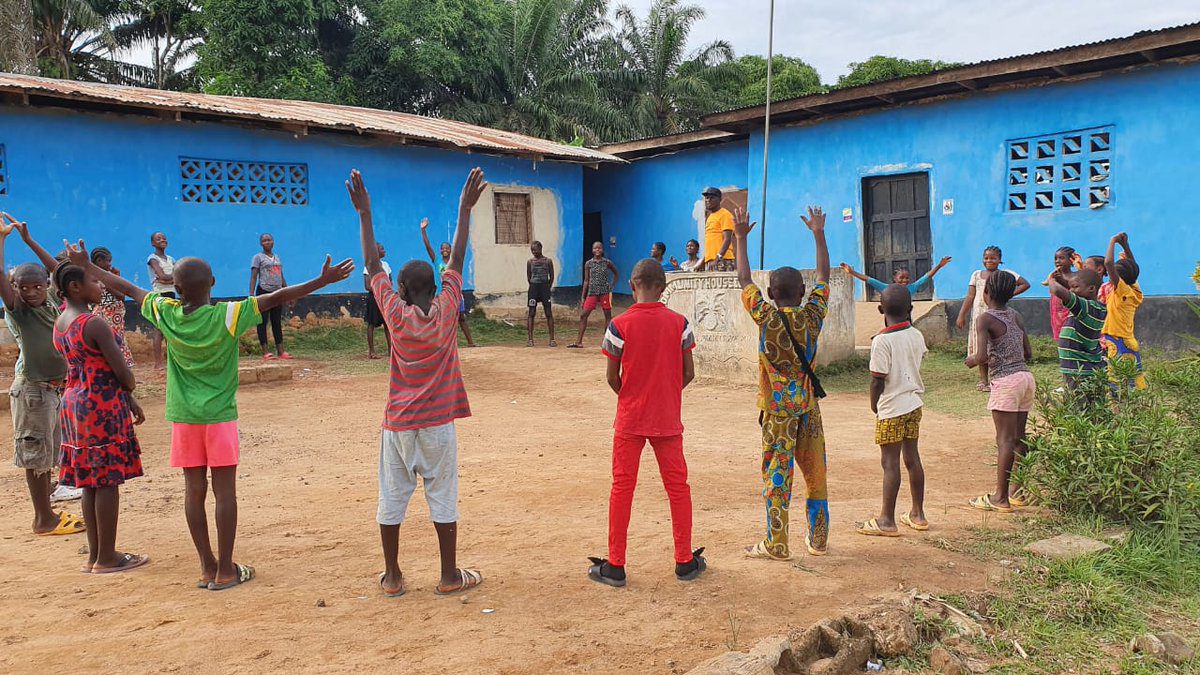(Photo credit: Dr. Jasmine Blanks Jones. The Anti-Racist Clinical Training using theater-based methods, shown here in West Africa, to increase skills of community mental health clinicians to better discuss race and racism.)
Racial discrimination is recognized as a key social determinant of health and driver of health inequities in the U.S. Studies have shown that systemic racism often means that people of color and those belonging to other marginalized groups do not receive the mental health support they need. Coupled with the COVID-19 pandemic, which has disproportionately hit Black communities and increased racism and xenophobic violence for Asians and people of Asian descent, the impact of racism on the mental health of people of color is often overlooked. HPRS scholars are working to address these impacts through evidence-based and comprehensive strategies.
The pandemic has given us proof that anti-racism work—which many advocates, activists, researchers and communities have been doing for decades—must be incorporated into everything we do. It is an issue that the Robert Wood Johnson Foundation is deeply committed to and is funding through the Health Policy Research Scholars program. Several HPRS scholars who received funding are actively working to develop new initiatives and community research to help not only those who seek mental health services, but also those who provide them.
Using theater to improve community mental health
With HPRS funding, Dr. Jasmine Blanks Jones (Cohort 2016) and Noah Triplett (Cohort 2020) partnered to fill the gap with much-needed research on how to incorporate anti-racism into mental health treatment. The team utilizes theater-based methods to increase community mental health clinicians’ self-efficacy and skills in discussing race and racism with Black clients.
The Anti-Racist Clinical Training (ACT) project began with a Washington-based statewide survey that assessed community mental health clinicians’ perceived barriers and facilitators to guide discussions of race and racism. The qualitative and quantitative survey data were analyzed to address common misperceptions (e.g., that youth clients are too young to discuss race and racism) and develop scripted interactions between a fictional therapist and Black client. Black clinicians consulted on script development and refinement, and all scenes were performed by trained actors.
“Ensuring Black Americans have access to high quality, culturally responsive therapy is an essential piece of advancing health equity,” said Dr. Blanks Jones.
Working with key stakeholders at each step of the project, scholars plan to present results to supervisors and administrators in Washington’s community mental health system. The potential for scale-up and policy change is high, and the ACT project is already demonstrating that innovative and interdisciplinary training models may be essential in helping psychologists and other mental health providers deliver high quality and culturally responsive therapy.
Addressing the dual pandemics of COVID-19 and racism
Another team leading change in their community with the assistance of HPRS funding is Daniel Do (Cohort 2020), Hayden Dawes (Cohort 2020), and Dr. Paul Shafer (Cohort 2016), who are collaborating to highlight the challenges and barriers facing women of color in accessing and engaging in mental health services while also combatting COVID-19.
“The dual pandemic of COVID-19 and racism has impacted the mental health of our nation,” said Daniel Do. “We hope this project will highlight both the challenges, barriers, and facilitators of engaging in mental health treatment for women of color.”
Drawing on data from the COVID-19 Research Database of mental health utilization trends across demographic and socioeconomic variables, the team began with in-depth qualitative interviews focused on how the confluence of COVID-19 and racism impacts people’s experiences with mental health services. A preliminary finding has shown that COVID-19 restrictions, mainly physical distancing and working from home, have relieved women of color from having to engage white colleagues who want to discuss their newfound recognition of racism in America. The findings and nuanced stories are providing much-needed insight into how this dual pandemic of COVID-19 and racism has impacted the mental health of the nation.
“Through this HPRS RWJF grant, we have the opportunity to advance health equity and research skills, but also an opportunity to collaborate and develop meaningful relationships with one another,” said Dr. Paul Shafer.
The project ultimately hopes to advance policy recommendations for health equity.
Investing for the health of a nation
As the country heads into the pandemic’s third year, the 16 funded projects, including these two examples, shine a light on the connectedness between racial disparities and health outcomes. HPRS is committed to building a Culture of Health and proud to support these and other projects that are critically examining how the COVID-19 pandemic is exacerbating long-standing and deeply rooted inequities in communities of color. If we don’t focus on and tackle structural racism, we simply cannot make progress toward health equity in America.

